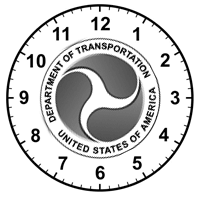 If a company that has defrauded the Department of Transportation in the past lands a stimulus contract, Calvin Scovel, DOT's inspector general, will have the right to a big, fat "told ya' so." Earlier this week, Scovel informed the department (PDF) that it has a pattern of tardiness when it comes to suspending or barring naughty contractors from receiving government money.
If a company that has defrauded the Department of Transportation in the past lands a stimulus contract, Calvin Scovel, DOT's inspector general, will have the right to a big, fat "told ya' so." Earlier this week, Scovel informed the department (PDF) that it has a pattern of tardiness when it comes to suspending or barring naughty contractors from receiving government money.
The division of DOT that awards contracts is supposed to rule on referrals to suspend or bar contractors within 45 days. But of 34 referrals that the inspector general's office made, 26 were not processed in a timely fashion, the advisory reports. It says those 26 took between 135 and 1,193 days to deal with, potentially leaving bad actors with a shot at taxpayer money in the meantime. The inspector general's office points to three key issues contributing to this problem: a lack of accountability, unclear policy and the part-time nature of the work involved in suspending and barring a contractor.
In February, a report (PDF) from the Government Accountability Office found that some companies that had been suspended or barred for egregious offenses, including national security violations, illegal chemical dumping and tax fraud, continued to receive federal funding simply because government officials failed to cross-reference contractors with the list of banned companies, or because the companies did not turn up when officials searched an electronic database.
Thus far, no suspended or barred companies have received stimulus contracts, but companies with past transgressions have. ProPublica is recruiting volunteers to help keep an eye on stimulus contracts.


